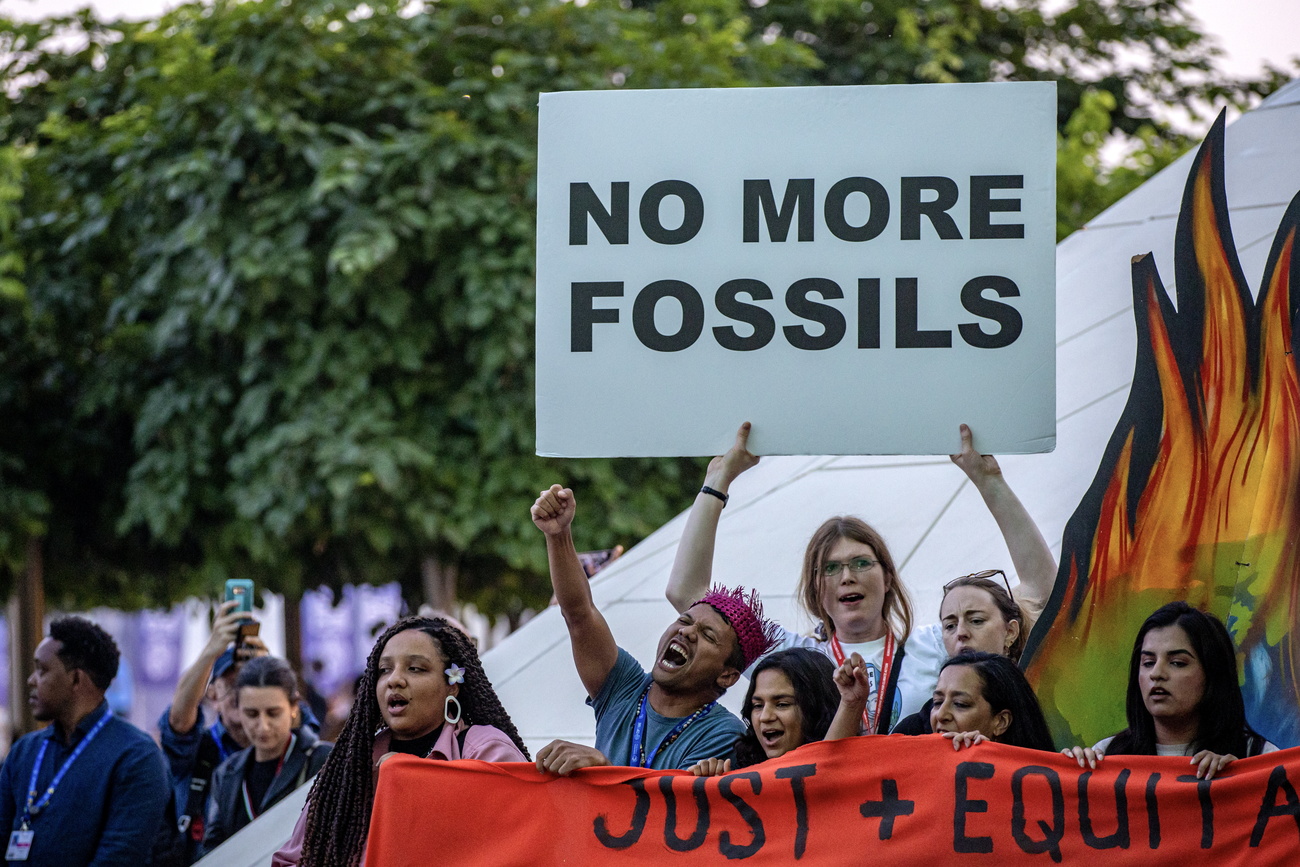
COP28 was ‘partial success’, says Swiss environmental group

The COP28 climate summit in Dubai adopted a final deal on Wednesday that for the first time calls on nations to transition away from fossil fuels. The environmental organisation WWF Switzerland called it a “partial success”.
The WWF said the final text that describes a transition away from fossil fuels to avert the worst impacts of climate change was a “partial success”. The outcome of these negotiations, the most important since the Paris climate summit in 2015, is a signal for Switzerland too, it added.
“Unfortunately, a binding pathway for a global phase-out of fossil fuels was not included in the final declaration. But the international community is clearly committed to phasing out coal, oil and gas by 2050,” said WWF Switzerland climate expert Patrick Hofstetter in a press release on Wednesday.
+ Swiss president demands quick action at COP28
“This is an important and clear signal for all companies, banks and insurance companies,” he added. “Investing in new infrastructure for fossil fuels is no longer viable.”
The medium-term climate target for 2035 has also been set. By then, global carbon dioxide (CO2) emissions must be reduced by 60%, and each country must make its own contribution. By 2025 at the latest, countries will have to submit their new climate protection plans to the UN, detailing how they intend to meet the target.
+ Offset scandals put Switzerland in the spotlight at COP28
With its current trajectory, Switzerland is not meeting any of the climate targets, says WWF. On December 20, however, parliamentarians in the House of Representatives will be able to make changes when they discuss the Swiss CO2 Act.
WWF is calling for an increase in the CO2 tax on fossil fuels, which would allow the Swiss authorities to expand its programme to encourage the renovation of buildings and replace old heating systems.
WFF is also calling for Switzerland’s carbon offset model to be adapted for use abroad. The environmental organisation would also like to see additional support from wealthy industrialised countries, including Switzerland, for the countries of the Global South to help them cope with the climate crisis.
This news story has been written and carefully fact-checked by an external editorial team. At SWI swissinfo.ch we select the most relevant news for an international audience and use automatic translation tools such as DeepL to translate it into English. Providing you with automatically translated news gives us the time to write more in-depth articles. You can find them here.
If you want to know more about how we work, have a look here, and if you have feedback on this news story please write to english@swissinfo.ch.

In compliance with the JTI standards
More: SWI swissinfo.ch certified by the Journalism Trust Initiative




























You can find an overview of ongoing debates with our journalists here . Please join us!
If you want to start a conversation about a topic raised in this article or want to report factual errors, email us at english@swissinfo.ch.